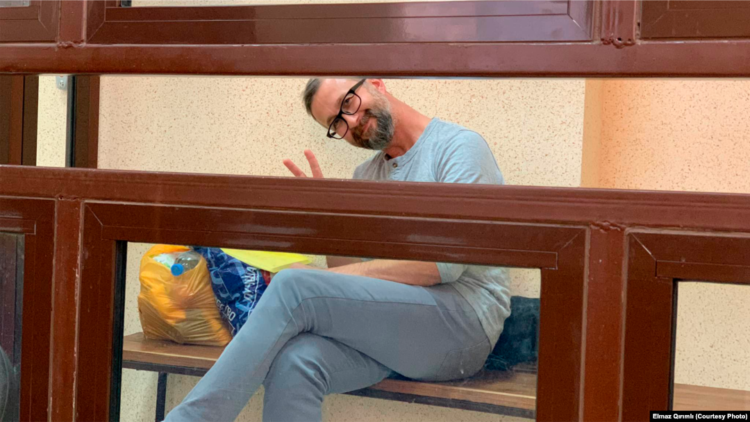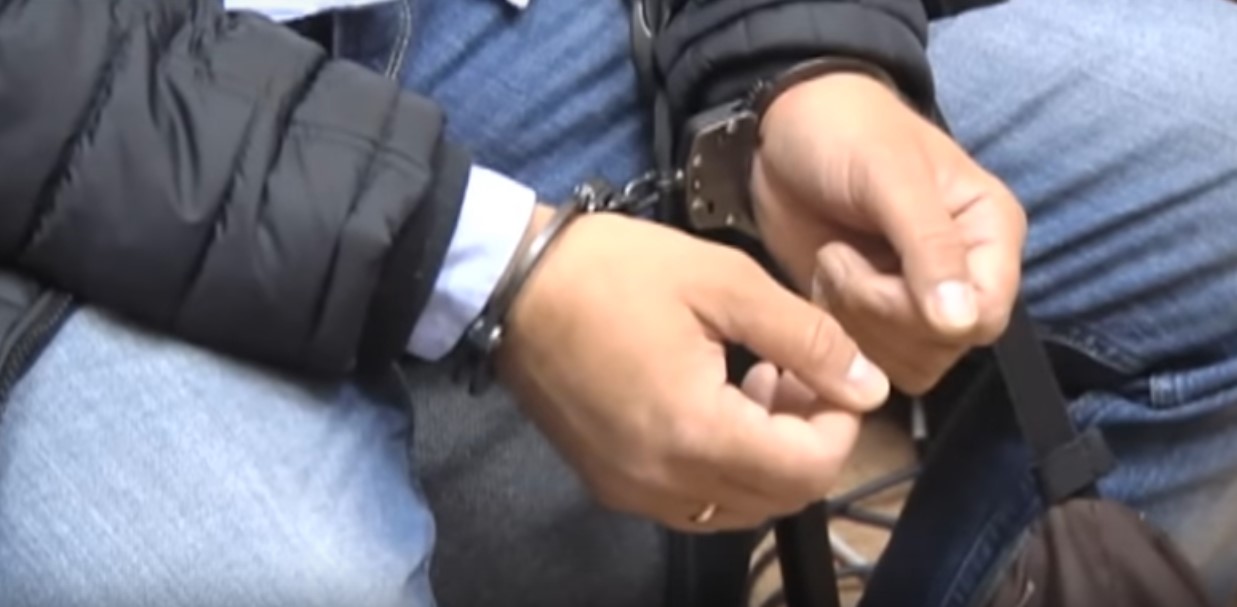According to his lawyer, Mr Dzhelyal is now imprisoned in dire conditions of the Simferopol remand prison. The Crimean Tatar leader remains without contact with the outer world. Moreover, his cell is not heated while winter temperatures in Crimea approach freezing point.
The incarceration of Nariman Dzhelyal is a part of systemic attack Russia has launched against Crimean Tatars, the indigenous people of Moscow-occupied Crimea, for their resistance to langrab. As of today, 127 Crimeans are imprisoned in the peninsula or Russia on political, national, and religious grounds.
On 4 September, Pervomayskoye village of Simferopol region of Crimea saw the detention of Nariman Dzhelyal. On 6 September, a Russia-controlled court in Simferopol heard his mock case, in which the defendant pleaded not guilty.
Apart from Nariman Dzhelyal, Russian security service officers detained Aziz Akhtemov, Asan Akhtemov, Eldar Odamanov, and Shevket Useinov. The detentions were preceded by searches in their homes. In this way, Russian police searched for perpetrators of an alleged explosion in a gas pipeline in Perevalne village near Simferopol on 23 August. In relation to the incident, the state initiated a criminal case on “wilful destruction or damage of things.”
Following the raids, the five Crimean Tatars were taken in an unknown direction. Within 24 hours, Dzhelyal was kept in an unknown place, handcuffed and with a bag over his head, according to his lawyer Emine Avamilyeva. He was deprived of food and water. Only on the evening of 5 September, their whereabouts came out of the shadows: the detainees were found in the FSB Department for Crimea. No independent lawyers were allowed.
Notably, the alleged gas line rupture occurred on 23 August — on the day when Kyiv hosted an inaugural summit of the Crimea Platform, a first-of-the-kind international platform for the ultimate peninsula’s de-occupation, that gathered over 40 foreign participants. According to Refat Chubarov, Head of the Mejlis, the abduction and arrest are the Kremlin’s revenge for the Crimea Platform.
Crimea Platform – mere formality or workable mechanism to recover Ukraine’s peninsula?
The case is manifestly ill-founded. Mykhailo Gonchar, President at Centre for Global Studies “Strategy XXI,” explains that this is because the gas line in Perevalne is not a main but a typical low-pressure gas pipeline of the local gas distribution network. That is, the effects of this “subversive act” would have been almost equal to zero, such as short-term interruption of gas supply without any other damage. He adds that
“this ‘diversion’ looks ridiculous and obviously, was speedily made upon the request from the top when the ‘creatives’ had no time to work out the ‘fact’ for the ‘diversion of a strategic nature.”
Now, Mr Dzhelyal remains isolated from his family and friends, since prison administration prevents him from receiving correspondence.
Mr. Dzhelyal’s lawyer Nikolai Polozov managed to talk to his client before the hearing last week. He wrote on his Facebook that Nariman is held in a cell without heating. The radiators were turned on only for the time of a recent visit of the Social Monitoring Commission and the supervising procurator. The situation worsened since the next day following the call, Mr Dzhelyal was moved to another cell. There, the pipes leaked on the day when the heat was on. So, now Dhzelyal is staying in a cold and damp room.
As for the Supreme Court’s hearing, the decision was made to uphold previous rulings. Thus, Nariman Dzhelyal will remain in custody until at least 23 January. The lawyers plan to appeal this ruling in the cassation procedure and then, in the European Court of Human Rights.
As court practice shows, arrest is a suitable measure when the crime committed is grave and there is an ungrounded claim of the possibility of the defendant’s escape. According to Dzhelyal’s lawyers, his arrest is unnecessary. This is because he has minor children and sick parents dependents. However, Moscow’s kangaroo court traditionally ruled in favour of the interests of the law enforcers and contrary to the interests of a Crimean Tatar family, this way isolating the Crimean Tatar leader from the society.





